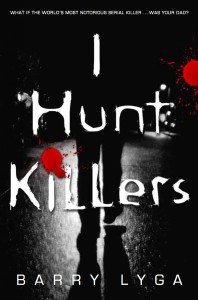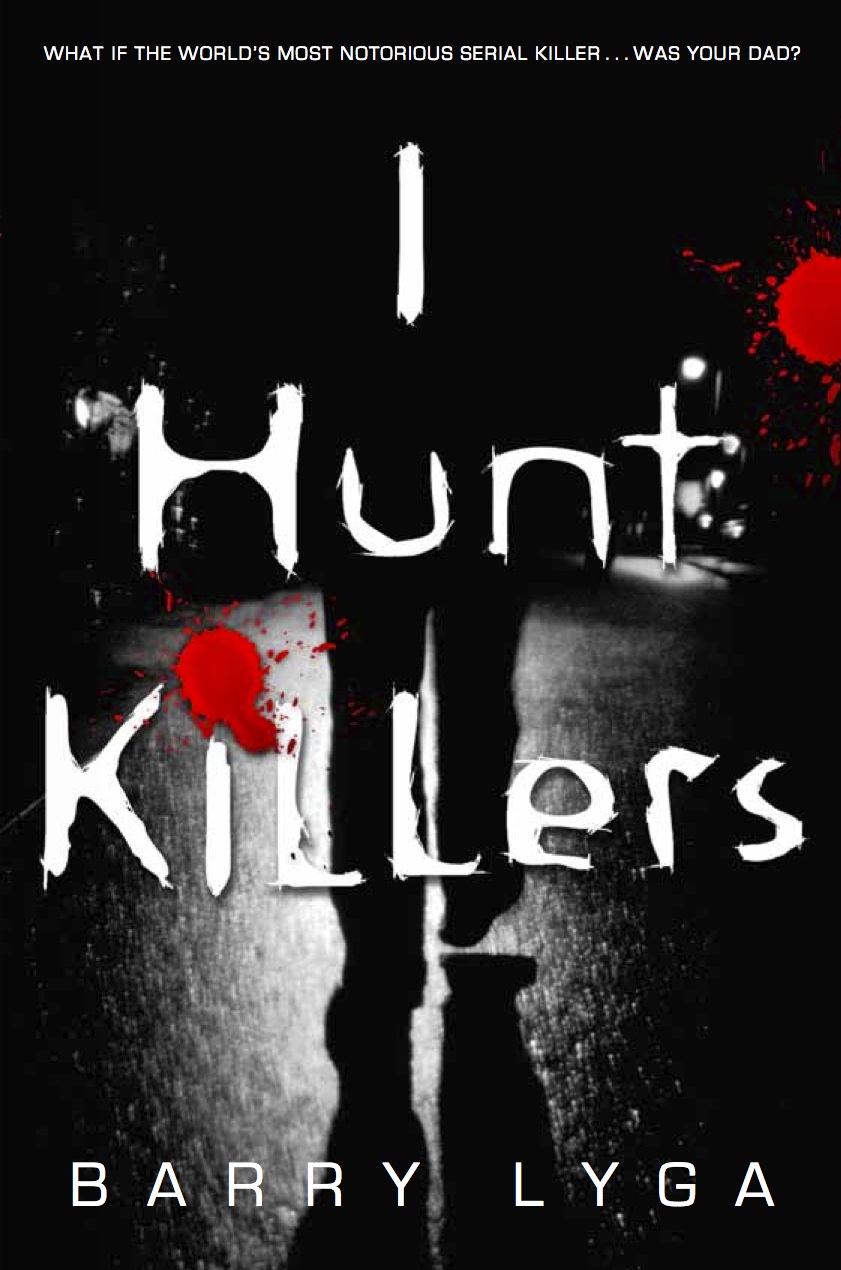 I don’t think it matters who you are or where you come from, no one wants to turn into their parents. But for Jasper “Jazz” Dent, the 17 year old protagonist in Barry Lyga‘s I Hunt Killers, the stakes are a lot higher than for most of us: his dad, Billy Dent, is the nation’s most notorious serial killer. And Billy took great care to “train” his son to follow in his footsteps, from meticiously describing his murders, to teaching Jazz the fine art of conning his prospects, and ultimately bringing him along on his killing sprees. Jazz is haunted by nightmares of Billy’s trophies, Billy’s cruelty and cunning, and an unanswered question about a bloody knife and Jazz’s missing mother.
I don’t think it matters who you are or where you come from, no one wants to turn into their parents. But for Jasper “Jazz” Dent, the 17 year old protagonist in Barry Lyga‘s I Hunt Killers, the stakes are a lot higher than for most of us: his dad, Billy Dent, is the nation’s most notorious serial killer. And Billy took great care to “train” his son to follow in his footsteps, from meticiously describing his murders, to teaching Jazz the fine art of conning his prospects, and ultimately bringing him along on his killing sprees. Jazz is haunted by nightmares of Billy’s trophies, Billy’s cruelty and cunning, and an unanswered question about a bloody knife and Jazz’s missing mother.
Billy has been in prison for 124 murders for four years and Jazz has been trying to fit into high school and small town life, all the while struggling against the fear that his father’s sociopathic impulses, lessons, and urging will overwhelm him. Then, an unidentified woman’s body is found in a field outside of town. And then another woman, and another, turn up dead, killed in a method eerily similar to Billy Dent’s early “style.” Jazz knows that there’s a serial killer behind it, but he can’t get the local sheriff to see the clues or let him help in an “official” capacity. So Jazz, his girlfriend Connie, and best friend Howie, try to stay one step ahead of a killer who has something that links him to Jazz in an unthinkable way.
The high-stakes, pulse-pounding mystery in I Hunt Killers is complexly developed and tension saturates every page. This is a fast-paced, well plotted story that keeps you turning pages as false clues, horrific memories, and gruesome descriptions of the crimes blend together into a macabre nightmare that will appeal to fans of TV shows like Showtime’s Dexter. Lyga’s psychological examination of a sociopath’s “training camp” is portrayed with exquisite attention to detail: Jazz remembering Billy’s instruction, hearing his father’s voice in his head that coaxes him to act on his impulses and desires, and the realization that sometimes Jazz enjoys the power he has over people. Readers can’t help but feel for Jazz as he desperately needs to believe that if he uses his “education” and skills to understand and hunt these killers, it will ensure that he doesn’t become one.
- Posted by Cori

